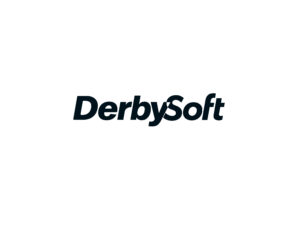Connectivity between a hotel supplier and a distributor is required for booking hotel rooms over the internet. Current technological capabilities are so powerful and growing so quickly, you’d assume that connecting a hotel company’s Central Reservation System (CRS) to an Online Travel Agency (OTA) to exchange data would be simple. Unfortunately that’s not always the case. Connectivity has always been a challenge for a number of reasons, and sometimes these challenges are show-stoppers.
We’ll take a look at the options available for making these connections and the criteria to consider before deciding on a specific solution.
The challenges
Because no true standard exists, over time every supplier and every distributor has developed their own one-of-a-kind platform. In most cases, these platforms have been around for a long time, often predating the world-wide-web, so they were never intended to be connected to other platforms.
Every platform structures its data differently. Different platforms also have differing capabilities for how data may be exchanged. Connections need to support varying commercial models and terms as well. However, these platforms are usually not readily compatible.
Three connectivity methods
So, what are the options for connectivity?
- Build a direct connection;
- Use a switch;
- Use a connectivity provider.
Direct connections
A hotel supplier and a distributor can connect their platforms directly.
Direct connections make sense only when:
- These platforms have similar data structures,
- They have compatible data delivery methods, and
- The companies have the time and resources to build a custom connection.
Additionally, direct connections are always one-to-one projects, so connecting to each new partner requires starting all over again. This means that direct connections are practical only in some cases.
Use of a switch
The supplier and distributor can connect through a switch, which routes information from one partner to another as it passes through the switch. Each player that connects to a switch must connect in exactly the same way, and all data has to be normalized.
There’s really just one hotel switch. First known as THISCO (The Hotel Industry Switch Company) and then as Pegasus Solutions, this switch is currently named DHISCO (Distribution Hospitality Intelligent Systems Company). It was developed 20-some years ago to connect the big CRSs to the Global Distribution Systems (GDSs).
The advantages of the switch are as follows:
1. The switch supports one-to-many connections;
2. Because connections are standardized, connecting to multiple parties is fast.
However, there are drawbacks to the switch:
1. There is no flexibility for partners because the switch dictates how every party connects;
2. Also, the switch is a simple pass-through platform, so it can’t perform any of a wide range of functions or service, such as applying logic to the data before sending it onward, that one or both partners might desire or require.
Use of a connectivity provider
This is where the suppliers and distributors operate as nodes in a world-wide network. A connectivity provider establishes communication between any pair of a supplier and a distributor, and offers several advantages over direct connections and the switch.
Specifically, a competent connectivity provider should be able to support any pair of supplier and distributor
- Regardless of compatibility between their data structures and delivery methods,
- Regardless of their size and available resources,
- Independent of other connections involving that supplier or distributor,
- At performance levels rivaling direct connections,
- With an interface that imposes little or no change in the data structure or delivery method for the individual players, and
- With an option to perform connection-specific functions or services as desired by the connection pair.
Only a single connection should be required between the connection provider and any given supplier or distributor for realizing all of the above.
So, this third option has the potential to combine the best of direct connections and the switch while avoiding their pitfalls, plus it can offer increased functionality. How well a solution in this realm achieves that balance depends on its quality of service.
Criteria for evaluating connectivity providers
What should a prospective user of connectivity services consider?
1. Performance
Performance in the context of connectivity generally refers to speed and accuracy. Accurate hotel rate and availability information (ARI) is crucial to the hotel booking process. When a consumer is considering making a booking, the speed with which the rate appears directly impacts conversion.
Therefore, a key consideration when reviewing connectivity providers is the combination of their accuracy rate and their average response times.
2. Flexibility
Flexibility in connectivity manifests in a number of ways. Connections involve two parties, each with its own platform, and nearly all platforms are custom-built and one-of-a-kind. So, most connections require one or both parties to compromise or “be flexible” in terms of ARI data delivery method, data structure, commercial model, and/or booking delivery method.
However, if a connectivity provider is also involved and is suitably proficient, the point of flexibility need not be with the supplier or the distributor. The connectivity provider can supply this flexibility and absorb the differences between the two platforms partner’s platforms and businesses. This mitigates the need for one or both partners to either modify their platforms or accept a lower-performing connection.
3. Conversion capability
Conversion capability is how well or poorly the connectivity provider converts data flow between partners. It also refers to the differences in these partners’ expectations of data flow. It involves both how data is structured and how it is transmitted.
Take the example where a supplier’s data is structured by daily rates, but the supplier’s distribution partner has a platform built on length-of-stay rates. A good connectivity provider would be able to take the daily rates and convert them to length-of-stay rates by building and implementing logic using rules and restrictions.
A similar scenario exists for data transmission. The classic example of a transmission problem is a supplier with a platform that’s set up to be pulled from (distribution partner needs to initiate the pull), and a distribution partner with a platform that’s set up to receive a push (supplier needs to initiate the push). The supplier’s system waits for the pull, and the distributor’s system waits for the push, and of course, nothing happens. A good connectivity partner readily knows how to convert between data transmission methods and has deep experience doing so.
4. Reliability
Reliability is a measure of how consistently connections function well.
A well-functioning connection is indicated by:
- Accurate data mapping, a significant and necessary component of connectivity.
- Automated calculations and conversions that overcome incompatibilities between partners’ systems.
- High performance caching, often a requirement to either support commercial concerns or buffer a partner’s platform.
- A very low error rate.
Connectivity is a complicated business, and these various pieces are often in flux depending on one or both partners.
Even with well-functioning connectivity, outages invariably happen. So, consideration should be given to how frequently issues appear with a given connectivity provider, and perhaps more importantly, how quickly they resolve such issues.
While up-time is one data point, perhaps a more complete picture of the reliability of a provider’s service can be garnered by interviewing several of the provider’s clients.
5. Support
Support is a fundamental component of connectivity. It is a measure of a connectivity provider’s responsiveness to deal with an issue faced by a connectivity partner.
Connectivity providers ostensibly deal in technology solutions, but for so many reasons, some mentioned above, they’re also day-to-day providers of support. Some are minor items that result in a support ticket. Others are more significant and higher priority issues that deserve immediate attention. Yet other times, support comes in the form of advice about prospective partners, best practices (either technical or commercial), or other suggestions that improve commerce and profitability.
No decision regarding a connectivity provider should be made without examining their support infrastructure, their personnel, and their attitude toward the support process.
The DerbySoft connectivity service
Build is DerbySoft’s custom connectivity service that addresses the criteria mentioned above.
As a totally customisable solution, Build enables unrestricted conversion capability and relieves the suppliers and distributors from worrying about conversions.
A single connection to Build enables a supplier or distributor to work with any number of partners, also connected to Build.
DerbySoft’s accuracy rate differs with each supplier depending on the limits of each supplier’s platform. But in all cases, we continually push the boundaries for what is possible in accuracy given a supplier’s platform.
As for speed, our distributed platform with ~1,000 servers in clusters scattered around the globe enables it to deliver an average response time of 0.33 milliseconds regardless of geography.
We encourage prospective clients to talk with any of our clients about their DerbySoft experience. These conversations are vital in forming a complete picture about our history of reliability and support.
Read more information on DerbySoft’s custom connectivity service, Build here. Or contact us.


